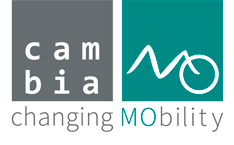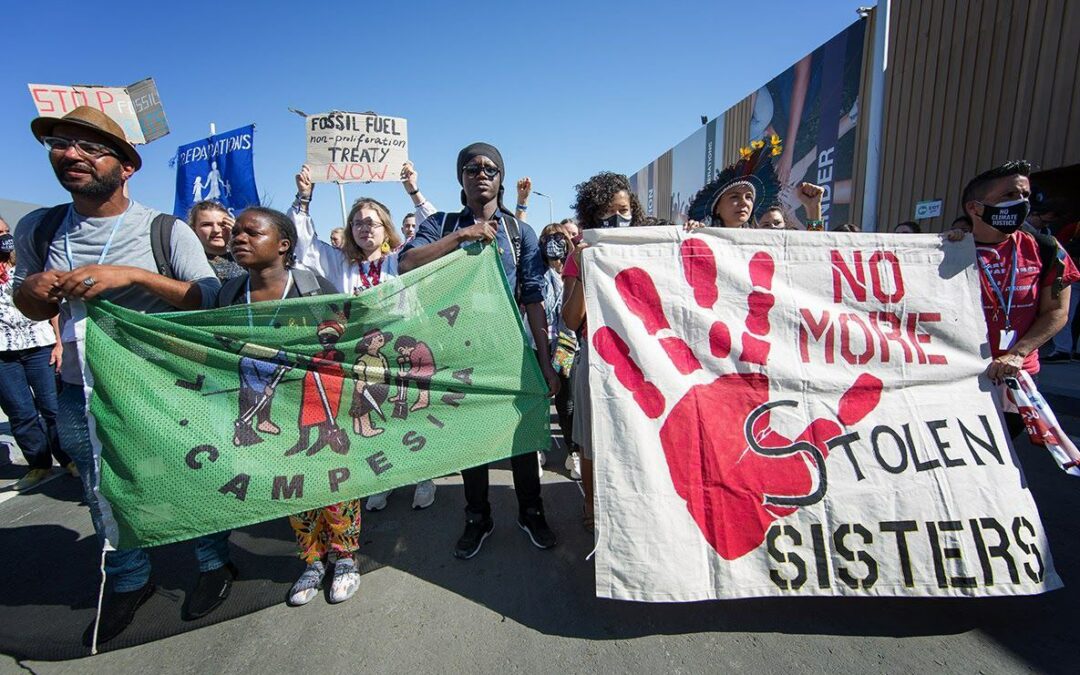Photho credit: Annabelle Avril/WECF
by Floridea Di Ciommo
The 27th United Nations Conference of the Parties on Climate Change (COP27) was held in Sharm el-Sheikh, Egypt, from November 6-19, 2022. Building on the results and momentum of COP26 in Glasgow (UK) last year and the negotiations at SB56 in June of this year in Bonn, countries were expected to demonstrate at COP27 that they are in a new era of implementation by turning their commitments, under the Paris Agreement, into action.
The current achievements are uncertain about the future and modest in terms of feminist climate justice. During this day of November 25 2022 when we remember our stolen sisters and advocate for never having one more “stolen sister”, cambiaMO, observer at COP27 states that some notable highlights beyond the fund for loss and damage (L&D) need still to indicate implementation pathways. Once again civil society is left in the uncertainty about which way of implementation will be chosen. We hope that the L&D fund progress will be distributed in a just, anti-colonialist, and anti-patriarchal way and will not serve as an excuse for escaping previous liabilities.
Mitigation measures, including fossil fuel phasing out need to be kept as a key point of the COPs agendas. We need a truthful engagement for lowering down high consumption by high emitting countries. Globally, households with income in the top 10% contribute about 36-45% of global GHG. We need a clear engagement on the transport system – 1/3rd of GHG emissions are linked to persons and goods mobilities, yet scientific findings on active mobilities such as walking and biking are marginalised in intergovernmental negotiations. The pure substitution of current fossil fuel engine private vehicles by electric private vehicles will be not enough for mitigating or even adapting to climate change.
The COP27 outcomes marked the first multilateral environmental agreement to include an explicit reference to the human right to a clean, healthy and sustainable environment. This should open a path for recognition of this right for everyone. People need to know about what is happening, why it is happening, and how they can call for their right to a clean, healthy and sustainable environment.
The approval of the Action for Climate Empowerment-ACE-Action Plan has provided a glimpse of hope that Parties understand there won’t be climate justice without Human Rights. Based on Paris Agreement Article 12 on climate change education, the Action Plan will help to develop capabilities to protect and enhance the rights of access to information, to public participation, and for education. The plan is coming close to an intersectional analysis focusing on the needs of children and youth, women and girls, indigenous Peoples and people with disabilities. However, we regret that the collaborative ACE consultations including observers’ expertise were an exception during this COP27. We demand the same standard for all themes from L&D, adaptation, mitigation and article 6 to Gender.
From our cooperative perspective, we would stress the effectiveness of community-based and bottom-up climate action, including examples of positive regulation to promote decentralised renewable energy production within the energy communities. An example of positive regulation is happening in Spain where community-led sustainable energy groups can get permission to produce together energy. However, this regulation needs to be supported by an ambitious capacity building investment to not leave anybody behind. Worldwide, most solar panel implementation remains accessible only to the middle to upper class. We advocate for a democratisation of climate just solutions for mitigating climate change, but as well for adapting to it. We ask for frugal technological solutions, affordable p, “based on care and well-being bridging indigenous women’s ancestral knowledge with modern science for ecosystem protection, or strengthening women’s labor rights in climate affected territories, or supporting cooperative models for a gender inclusive energy transition” .
cambiaMO promotes an inclusive, intersectional and just climate transition approach defending a sustainable urban and interurban mobility with social justice at the centre of systems’ transformations, including infrastructures and related services, mainly in mobility and energy sectors.







